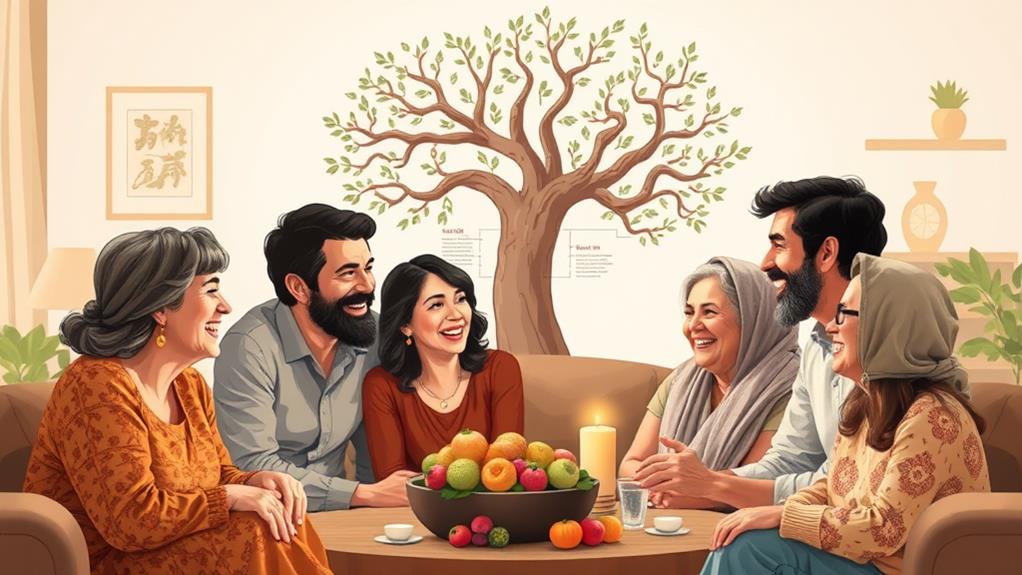How To Conceive Twins & Points To Consider
When you’re considering the journey to conceive twins, it’s vital to understand the different types of twins and the factors that can influence your chances. Genetic predispositions, maternal age, and lifestyle choices all play significant roles in this complex process. You might find that certain dietary adjustments and medical interventions can also enhance your likelihood of having twins. However, it’s important to weigh the potential risks and financial implications associated with these options. As you explore these considerations, you’ll uncover some surprising strategies that could increase your chances even further.
Understanding Twin Types

When considering how to conceive twins, it’s important to understand the different types of twins.
You’ve probably heard of identical and fraternal twins, but what do they really mean? Identical twins, also called monozygotic twins, come from a single egg that splits into two. So, surprise! You get two babies with the same genetic material. They often look alike and share the same DNA.
On the other hand, fraternal twins, or dizygotic twins, happen when two separate eggs are fertilized by two different sperm. Think of this as playing the lottery—you get two tickets, but they mightn’t be identical! Fraternal twins can look similar or completely different, just like any siblings.
Understanding these twin types helps you grasp what might happen during conception. While you can’t control which type you’ll have, knowing the difference is a fun starting point.
Plus, it’s a great conversation starter! Imagine telling your friends about the fascinating world of twins and how they come to be.
Genetic Factors
Genetics play an essential role in the likelihood of conceiving twins. If you have a family history of twins, you might be in luck! Identical twins happen when one egg splits into two, but fraternal twins come from two separate eggs. If your mother or grandmother had fraternal twins, your chances of having them might increase. It’s like a fun family tradition that you could inherit!
Another thing to reflect on is whether you’re a woman. Studies show that women can inherit the ability to release multiple eggs during ovulation, which raises the chances of having fraternal twins. So, if you’ve got that gene, you could be in for a double surprise!
Now, don’t start planning for double the birthday cakes just yet. While genetics are a key piece of the twin puzzle, they’re not the only factor. Lifestyle choices, diet, and overall health can also play a role.
Age and Fertility

As you consider the journey to conceive twins, your age can greatly influence your chances. Women in their 30s and early 40s might’ve a higher chance of releasing more than one egg during ovulation. This phenomenon can lead to the possibility of conceiving twins.
However, as you get older, your fertility can decline, making it a bit trickier to conceive, whether it’s twins or a single baby.
Interestingly, older women often have a higher chance of having fraternal twins. This is because hormone levels fluctuate, which can cause multiple eggs to be released.
But don’t forget, with age often comes other challenges, too, like potential health risks. It’s essential to think about these factors when planning for twins.
Now, if you’re in your 20s, you mightn’t have the same odds for twins, but you’re likely to have a higher overall fertility rate.
Diet and Nutrition
Your diet and nutrition play a significant role in your overall fertility and can impact your chances of conceiving twins. You might be wondering how that works, right? Well, eating a balanced diet rich in vitamins and minerals can help boost your fertility.
Foods high in folic acid, like leafy greens and beans, are especially important. They not only support a healthy pregnancy but may also increase your chances of having twins!
Don’t forget about healthy fats! Foods like avocados and nuts are great for your body. They provide energy and support hormone production, which is key when you’re trying to conceive.
Plus, staying hydrated is super important. Drink plenty of water to keep everything functioning smoothly.
While you enjoy your meals, try to limit processed foods and sugary snacks. They don’t do your body any favors.
Instead, focus on whole grains, fruits, and vegetables. Think of it as fueling up for a race—you want the best energy possible!
Medical Treatments

Often, couples exploring the possibility of conceiving twins turn to medical treatments for assistance. One common option is fertility medications, like Clomid or Gonadotropins. These medications can boost your chances of releasing more than one egg during ovulation, which could lead to twins. It’s like giving your body a little nudge!
Another avenue is in vitro fertilization (IVF). With IVF, doctors can implant multiple embryos into your uterus, increasing the chances of twins. It’s a bit more involved, but many couples find it worth the effort. Plus, you get to work closely with your healthcare team, which is always a plus!
However, while these treatments can be exciting, they come with some risks. Multiple pregnancies can lead to more complications, so it’s crucial to have a chat with your doctor about your goals and the potential outcomes.
They can help you weigh the pros and cons, making sure you’re well-informed.
Lifestyle Changes
Making lifestyle changes can play a significant role in increasing your chances of conceiving twins.
First, consider your diet. Eating a balanced diet rich in dairy, folic acid, and healthy fats might help boost your odds. Think about adding more fruits, vegetables, and whole grains, too. They’re not just good for you; they can also keep your body in tip-top shape!
Next, don’t underestimate the power of maintaining a healthy weight. Being either underweight or overweight can affect your fertility. So, if you’re not sure, check in with your doctor to find the right balance for you.
Exercise is another great way to get your body ready for pregnancy. Regular, moderate exercise can improve your overall health and help with hormone balance.
But remember, don’t overdo it! Too much intense exercise can have the opposite effect.
Lastly, managing stress is key. Stress can mess with your body and make it harder to conceive.
Family History

Having a family history of twins can greatly boost your chances of conceiving multiples. If you’ve got twins in your family, you might be in luck! Genetic factors can play a huge role in whether you’ll have twins yourself. If your mom, sister, or even a grandmother had twins, your odds increase considerably. It’s like having a little extra luck in your pocket!
Now, here’s how it works: fraternal twins occur when two eggs are released and fertilized. This can run in families, especially on the mother’s side. Identical twins, on the other hand, happen by chance and don’t seem to follow family lines. So, if you’ve got that family history, you might just be more likely to release two eggs.
But don’t forget, it’s not just about genetics! Other factors, like your age and overall health, also play a part. While you can’t change your family history, knowing it can help you understand your chances better.
Timing Intercourse
If you’ve got a family history of twins, you might be wondering how to further increase your chances. One important factor is the timing of intercourse. You see, timing can play a key role in conception, especially if you’re hoping for twins.
To boost your odds, aim to have intercourse during your fertile window. This is usually the five days leading up to ovulation and the day of ovulation itself. Tracking your cycle using apps or calendars can help you pinpoint when that magical time happens. A little planning goes a long way!
Also, consider having intercourse multiple times during this fertile period. More attempts mean more chances for those eggs to meet their match. Plus, if you’re feeling particularly adventurous, you might even try the “every other day” strategy. This keeps things fun while maximizing your opportunities.
Lastly, don’t stress too much about it! Enjoying the process can make the experience even more special. So, focus on connection, communication, and having a good time together. Who knows? You might just create the twin magic you’re hoping for!
Risks and Considerations

While the excitement of trying to conceive twins can be thrilling, it’s vital to understand the risks and considerations involved.
First off, having twins means you’ll be juggling two babies at once—talk about a busy household! You need to think about the potential for complications during pregnancy, such as gestational diabetes or high blood pressure. These can make things a bit tricky for both you and your little ones.
Also, let’s talk about the extra costs. Twins usually mean double the diapers, double the clothes, and double the baby gear. So, your wallet might feel a little stretched!
Then there’s the emotional aspect. Caring for two babies at the same time can be overwhelming, so having a good support system is essential.




